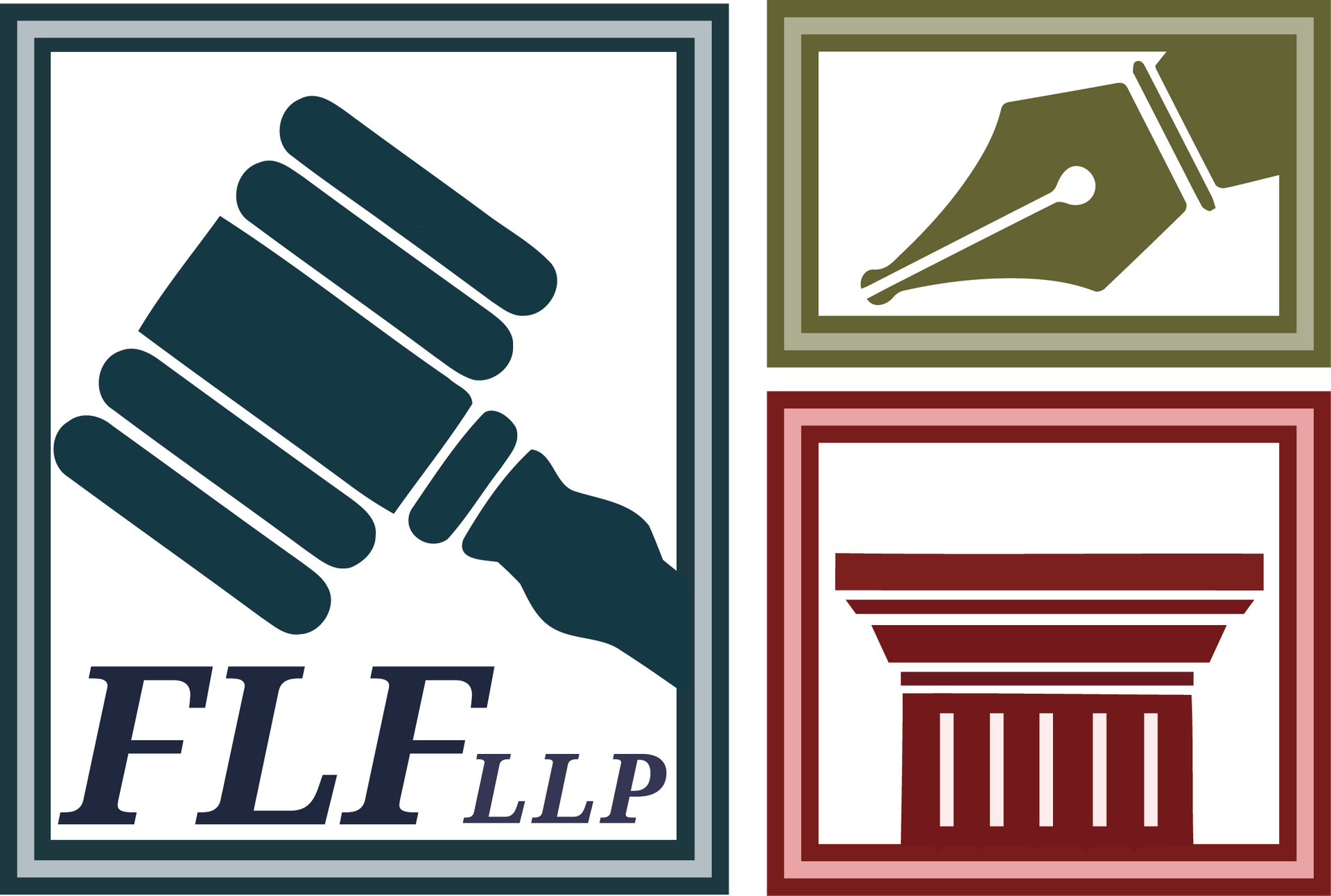Blog
Blog

By Feriante Law Firm
•
May 1, 2024
Creating an estate plan for a blended family, where one or both spouses have children from previous relationships, requires careful consideration to ensure that the needs and interests of all family members are addressed. Here are some strategies to consider when developing an estate plan for a blended family: Open Communication : Start by having open and honest conversations with your spouse and children about your wishes and intentions for your estate plan. Discussing your plans and addressing any concerns or expectations can help minimize misunderstandings and conflicts among family members. Asset Inventory and Distribution : Take inventory of your assets and determine how you want them to be distributed upon your death. Consider whether you want to provide for your spouse, children from previous relationships, and any children you have together. You may need to balance competing interests and ensure that each family member receives a fair share of your estate. Use of Trusts : Trusts can be valuable tools for estate planning in blended families. You may consider using a trust to provide for your surviving spouse while ensuring that assets ultimately pass to your children from a previous relationship. A trust can also offer protections for minor children, individuals with special needs, or beneficiaries who may not be capable of managing their inheritances. Beneficiary Designations : Review and update beneficiary designations on retirement accounts, life insurance policies, and other accounts to ensure that they reflect your current wishes. Consider whether you want to name your spouse, children from previous relationships, or other beneficiaries as primary or contingent beneficiaries. Pre- and Postnuptial Agreements : Consider entering into a prenuptial or postnuptial agreement with your spouse to clarify your intentions regarding property rights, inheritance, and other financial matters. These agreements can help protect the interests of both spouses and provide clarity in the event of divorce or death. Guardianship and Custody : If you have minor children, discuss and document your preferences for guardianship and custody arrangements in the event of your death. Consider factors such as the children's best interests, the relationships between family members, and the ability of potential guardians to provide care and support. Regular Review and Updates : Estate planning needs can change over time, especially in blended families where relationships and circumstances may evolve. It's essential to regularly review and update your estate plan to reflect changes in your family, finances, and goals. Professional Guidance : Consulting with a qualified estate planning attorney who has experience working with blended families can provide valuable guidance and ensure that your estate plan effectively addresses your unique circumstances and goals. By taking these steps and working together with your spouse and children, we can help you create an estate plan that provides for your blended family's needs and promotes harmony and peace of mind for all involved.

By Feriante Law Firm
•
May 1, 2024
A Special Needs Trust (SNT), also known as a Supplemental Needs Trust, is a legal arrangement designed to provide for the financial needs of individuals with disabilities while preserving their eligibility for means-tested government benefits, such as Supplemental Security Income (SSI) and Medicaid (Medi Cal in California). Here's how a Special Needs Trust works in California: Purpose : The primary purpose of a Special Needs Trust is to enhance the quality of life of a person with disabilities by supplementing government benefits with additional funds for expenses not covered by those benefits. These expenses may include medical and dental care not covered by Medi-Cal, education, transportation, recreation, and other items or services that improve the beneficiary's quality of life. Trustee : A Special Needs Trust is typically managed by a trustee who has discretion to use trust funds for the benefit of the trust beneficiary. The trustee can be an individual, a professional trustee or a trust company. It's crucial to select a trustee who understands the needs of the beneficiary and has experience managing trusts. Funding : A Special Needs Trust can be funded with various assets, such as cash, real estate, investments, life insurance proceeds, or other property. The trust can be established during the lifetime of the person with disabilities (a "third-party" SNT) or through a court order or settlement (a "first-party"or "self-settled" SNT). Government Benefit Eligibility : Assets held in a properly drafted and administered Special Needs Trust are generally not counted when determining eligibility for means-tested government benefits, such as SSI and Medi-Cal. This allows the beneficiary to receive additional financial support without jeopardizing their eligibility for essential benefits. Disbursement of Funds : The trustee of a Special Needs Trust has discretion to use trust funds to pay for goods and services that enhance the beneficiary"s quality of life. However, trust funds cannot be used for expenses that would be considered basic necessities and are already covered by government benefits, such as food, shelter, and utilities. Legal Requirements : Special Needs Trusts in California must comply with state and federal laws governing trusts and government benefits. It"s essential that the trust is properly drafted and administered to meet the specific needs of the beneficiary and comply with applicable laws. Termination of the Trust : A Special Needs Trust may terminate upon the death of the beneficiary or when the trust funds are exhausted, whichever occurs first. Upon termination, any remaining funds may be distributed to designated beneficiaries or used to reimburse the government for certain benefits provided to the beneficiary during their lifetime. Overall, a Special Needs Trust in California provides a valuable tool for families to provide ongoing support for loved ones with disabilities while protecting their eligibility for essential government benefits.

By Feriante Law Firm
•
May 1, 2024
In California, a divorce can have significant implications for your estate plan, affecting how your assets are distributed and who has authority to make decisions on your behalf. Let’s dig into this a bit: Revocation of Spousal Beneficiary Designations : California law automatically revokes any provisions in a will, trust, or other estate planning documents that benefit your former spouse upon divorce. This means that if your estate plan named your ex-spouse as a beneficiary, executor, trustee, or agent, those provisions are generally invalidated upon divorce. However, it's still crucial to review and update your estate planning documents to reflect your changed circumstances and ensure that your assets are distributed according to your current wishes. Beneficiary Designations on Non-Probate Assets : Divorce may also affect beneficiary designations on assets such as retirement accounts, life insurance policies, and payable-on-death (POD) or transfer-on-death (TOD) accounts. California law provides that divorce revokes beneficiary designations naming your former spouse, unless the divorce judgment or settlement agreement provides otherwise. It's important to review and update these beneficiary designations to reflect your new beneficiaries. Effect on Joint Ownership : If you and your former spouse owned property jointly, such as real estate or bank accounts, the divorce may sever the joint tenancy or community property ownership, depending on the terms of the divorce judgment or settlement agreement. It's essential to clarify the ownership status of jointly owned assets and update your estate plan accordingly. Spousal Fiduciary Roles : Upon divorce, California law automatically revokes any appointments of your former spouse as executor, trustee, or agent under a power of attorney or healthcare directive. However, you should still update these documents to appoint new fiduciaries who you trust to manage your affairs and make decisions on your behalf. Guardianship of Minor Children : If you have minor children, divorce may necessitate a review of your guardianship designation in your will. You may need to update your will to designate a new guardian who will care for your children in the event of your death. Legal Guidance : Consulting with us to help ensure that your estate plan is updated properly to reflect the changes brought about by divorce. We can provide personalized guidance based on your individual circumstances and help you navigate the complexities of estate planning after divorce.

By Feriante Law Firm
•
May 1, 2024
Payable on Death (POD) accounts, also known as Transfer on Death (TOD) accounts, are financial accounts—such as savings accounts, checking accounts, or brokerage accounts—that have a designated beneficiary. Here's how they work: Designation of Beneficiary : When you open a POD account, you have the option to designate one or more beneficiaries who will receive the funds in the account upon your death. You can typically do this by completing a beneficiary designation form provided by the financial institution holding the account. Many institutions limit beneficiaries to persons named and do not allow “contingent” beneficiaries should a listed beneficiary not survive the account owner. Ownership During Your Lifetime : While you are alive, you retain full ownership and control of the POD account. You can deposit, withdraw, or manage the funds in the account as you see fit, without involvement from the designated beneficiaries. Distribution Upon Death : Upon your death, the funds in the POD account are transferred directly to the designated beneficiary or beneficiaries, outside of the probate process. This means that the funds bypass your will and are distributed according to the beneficiary designation you established when opening the account. Simplicity and Efficiency : POD accounts offer a relatively straightforward and efficient way to transfer assets to beneficiaries upon death. They can help avoid the time-consuming and potentially costly probate process, which is required for assets that pass through a will. Flexibility : You have the flexibility to change or update the beneficiary designation on a POD account at any time during your lifetime, as long as you are of sound mind and capable of making decisions. This allows you to adjust your estate plan as needed to reflect changes in your circumstances or relationships. It's important to note that while POD accounts can be a useful estate planning tool for certain assets, they may not be suitable for all situations. It's advisable to consider your overall estate plan and consult with us to determine the best approach for distributing your assets and achieving your estate planning goals.

By Feriante Law Firm
•
May 1, 2024
To make changes to your California attested Will, you have a few options depending on the extent of the changes you wish to make: Codicil : A codicil is a document used to amend or supplement an existing will. It must meet the same legal formalities as a will, including being in writing, signed by you (the testator), and witnessed by at least two competent witnesses. A codicil allows you to make specific changes to your will without revoking the entire document. Amendment or Revocation : Alternatively, you can revoke your existing will and create a new one. This is often a better option if you have substantial changes to make or if your existing will is outdated. You can revoke your will by executing a new will that expressly revokes all prior wills or by physically destroying the existing will with the intention of revoking it. Unofficial Methods : Please note the simply writing over existing provisions, whiting out provisions to add new ones, etc. are not listed in the options above and should not be employed. Consult with us : Regardless of the approved method you choose, it's advisable to consult with us. We can help ensure that your changes are made correctly and in compliance with state law to avoid potential challenges or disputes. When making changes to your will, it's always important to consider the following no matter which approved method you select: Clearly specify the changes you wish to make and ensure they align with your intentions. Update any references to beneficiaries, assets or fiduciaries affected by the changes. Review and update other estate planning documents, such as powers of attorney and advance healthcare directives, to ensure consistency with your will. Once your changes are properly made, be sure to store your updated will in a safe and accessible location, such as in the specially indexed binder we provide with each estate plan. Additionally, inform your executor or trusted family members of the location of your binder to facilitate its retrieval when needed.

By Feriante Law Firm
•
May 1, 2024
Deciding whether to make your Power of Attorney (POA) effective immediately depends on your individual circumstances and preferences. We will help you with this question when creating your estate plan but for now, here are some factors to consider: Trustworthiness of Agent : An immediate POA grants your chosen agent (also known as an attorney-in-fact) the authority to act on your behalf as soon as the document is executed. Therefore, it's crucial to appoint someone you trust implicitly, as they will have immediate access to make decisions and handle your affairs. Immediate Need : If you anticipate needing assistance with managing your affairs in the near future or if you already face challenges due to illness, disability, or other circumstances, an immediate POA may be appropriate. It ensures that your agent can act on your behalf without delay when necessary. Preference for Control : Making a POA effective immediately means relinquishing some control over your affairs to your agent from the moment the document is signed. If you prefer to retain full control until a specific triggering event occurs, such as incapacity, you may opt for a "springing" POA, which only becomes effective upon the occurrence of a specified condition. Complexity of Assets or Affairs : If you have complex financial affairs or assets that require immediate attention or ongoing management, an immediate POA can facilitate timely decision-making and action by your agent. Risk of Abuse or Misuse : Granting immediate authority to an agent carries the risk of abuse or misuse, particularly if the agent's interests conflict with your own. Therefore, it's essential to choose a trustworthy and responsible individual and consider including safeguards, such as periodic accounting or oversight by a third party, to mitigate the risk of abuse. Ultimately, whether to make your POA effective immediately depends on your comfort level, individual circumstances and the level of trust you have in your chosen agent. We will have this important discussion with you and can provide valuable guidance to help ensure that your wishes are carried out effectively and responsibly.

By Feriante Law Firm
•
May 1, 2024
Avoiding a will contest, where someone challenges the validity or terms of your will, involves careful planning and execution. Here are some steps you can take to reduce the likelihood of a will contest: Ensure Proper Execution : Follow all legal requirements for executing a will in your jurisdiction. This typically involves signing the will in the presence of witnesses and having them sign it as well. Complying with formalities helps establish the validity of the will and reduces the likelihood of challenges based on procedural grounds. We take steps on “signing day” to ensure that the specified requirements are met. Update Regularly : Keep your will updated to reflect changes in your circumstances, such as marriage, divorce, birth of children, or acquisition of significant assets. An outdated Will may not accurately reflect your wishes, increasing the likelihood of a contest. Don’t be afraid to update you Will when circumstance change. Communicate Clearly : Clearly communicate your intentions to your beneficiaries and family members to minimize misunderstandings or disputes. Discussing your decisions openly may help prevent surprises and reduce the likelihood of resentment or disagreement. Avoiding the “big surprise” that someone has been cut out the Will leads to fewer contests. Include No-Contest Clause : We will always include a no-contest clause in your will, which disinherits beneficiaries who challenge the validity or terms of the will. While these clauses may not deter all challenges, they can act as a deterrent for beneficiaries considering contesting the will. Obtain Professional Assistance : This is where we come in. Work with an experienced estate planning attorney to draft your will. A knowledgeable attorney can help ensure that your will complies with legal requirements and is less susceptible to challenges. They can also provide guidance on strategies for minimizing the risk of contests. Document Decision-Making Process : Keep records of your decision-making process when creating or updating your will. This may include notes, correspondence, or meeting minutes that demonstrate your capacity and intentions at the time the will was executed. Consider Trusts : In most cases, using a trust instead of a will lead to better results when it comes to distributing assets and avoiding potential challenges. Trusts offer greater privacy and can include provisions for managing assets and providing for beneficiaries in a way that may be less vulnerable to contest. While taking these steps can help reduce the likelihood of a will contest, it's important to recognize that challenges can still arise. Feriante Law Firm LLP provides the personalized guidance you need which is based on your specific circumstances and helps ensure that your wishes are carried out as intended.

By Feriante Law Firm
•
May 1, 2024
Reviewing and updating a trust is an essential aspect of estate planning, as circumstances and laws can change over time. While there's no one size-fits-all answer to how often you should review or update your trust, here are some common scenarios and guidelines: Life Changes : Whenever significant life events occur, such as marriage, divorce, birth or adoption of children, death of a beneficiary or trustee, or changes in your financial situation, it's wise to review your trust to ensure it still aligns with your wishes and circumstances. Change in Laws : Tax laws, inheritance laws, and other regulations can change over time. It's a good idea to review your trust whenever there's a significant change in the law that could affect your estate plan. Asset Changes : If you acquire or dispose of significant assets, such as real estate, investments, or businesses, it may be necessary to update your trust to reflect these changes and ensure proper asset distribution. Beneficiary Changes : If your relationship with beneficiaries. changes or if you want to add or remove beneficiaries, you may need to update your trust accordingly. Relocation : If you move to a different state or country, it's important to review your trust to ensure it complies with the laws of your new location. Trustee Changes : If the individuals or institutions named as trustees in your trust become unable or unwilling to fulfill their roles, you may need to update your trust to appoint new trustees. As a general rule of thumb, it's a good idea to review your trust at least every two to three years, even if no significant changes have occurred in your life or the law. This periodic review can help ensure that your trust remains up-to-date and continues to meet your needs and goals. However, if significant changes occur in your life or the law, you should review your trust immediately to determine if any updates are necessary. Feel free to reach out to us with concerns or questions or schedule a 15-minute phone call. We are here to help and would love to catch up with you.

By Feriante Law Firm
•
May 1, 2024
Mental decline can significantly impact your ability to create or modify an estate plan. Here are some ways it might affect you or someone you love: Capacity to Understand and Make Decisions : Mental decline, such as dementia or cognitive impairment, can impair your ability to understand complex legal concepts and make informed decisions about your estate plan. This could affect your ability to understand the implications of your choices regarding beneficiaries, asset distribution, and appointment of fiduciaries like trustees or executors. Vulnerability to Undue Influence : Individuals experiencing mental decline may become more vulnerable to undue influence from others. This could lead to changes in the estate plan that do not reflect your true wishes but rather the desires of someone taking advantage of your diminished capacity. We are always watchful for signs with our “at-risk” clients. Execution Requirements : Estate planning documents, such as wills and trusts, have specific legal requirements for execution, including being of sound mind at the time of signing. Mental decline could call into question whether you meet these requirements, potentially leading to challenges to the validity of your estate plan. Timing and Urgency : Mental decline can progress over time, making it important to address estate planning sooner rather than later. Waiting too long may result in decreased capacity, making it difficult or impossible to create or modify an estate plan according to the clients wishes. Legal Protections and Safeguards : Depending on the severity of the mental decline, a person may need additional legal protections and safeguards to ensure that your estate plan accurately reflects your intentions and is less susceptible to challenges. This might involve obtaining a medical opinion regarding mental capacity at the time of executing estate planning documents as well as extra measures we take when handling cases involving individuals with signs of some level of diminished capacity. Given these potential challenges, it's essential to address estate planning while you still have the capacity to do so effectively. We understand issues related to mental capacity can help ensure that your wishes are documented properly and your estate plan is less vulnerable to challenges.

By Feriante Law Firm
•
May 1, 2024
Creating a solid estate plan is essential for ensuring your wishes are carried out after you pass away. Here are some tips to help you craft a better estate plan: Start Early : Don't wait until later in life to create your estate plan. Start as soon as you have assets to protect and loved ones to consider. Procrastination can lead to rushed decisions and oversights. Starting early gives you time to consider all aspects of your estate and make adjustments as needed. Consult Professionals : Estate planning involves legal, financial, and tax considerations. Contact us and use our experience and connections to financial advisors and accountants to ensure your plan is comprehensive and legally sound. We can help you navigate complex laws and regulations, minimizing the risk of errors or oversights. Be Comprehensive : Your estate plan should cover all aspects of your assets and wishes, including your will, trusts, powers of attorney, healthcare directives, and beneficiary designations. Take time to consider all your assets, from real estate and investments to personal belongings and digital assets. Ensure your plan addresses the distribution of these assets according to your wishes. Review and Update Regularly : Life changes, and so should your estate plan. Marriage, divorce, births, deaths, changes in financial status, and relocation are all events that can impact your estate plan. Regularly review and update your plan to reflect any changes in your life circumstances or goals. Set a schedule to review your plan annually or whenever a major life event occurs. Communicate Your Wishes : Make sure your loved ones are aware of your estate plan and understand your wishes. Discussing your plans openly can help prevent misunderstandings and conflicts among family members. Consider holding family meetings or involving trusted individuals in the estate planning process to ensure everyone is on the same page. By following these tips and with our help, you can create a better estate plan that protects your assets, provides for your loved ones, and ensures your wishes are carried out effectively.

By Feriante Law Firm
•
May 1, 2024
Creating an estate plan for a blended family, where one or both spouses have children from previous relationships, requires careful consideration to ensure that the needs and interests of all family members are addressed. Here are some strategies to consider when developing an estate plan for a blended family: Open Communication : Start by having open and honest conversations with your spouse and children about your wishes and intentions for your estate plan. Discussing your plans and addressing any concerns or expectations can help minimize misunderstandings and conflicts among family members. Asset Inventory and Distribution : Take inventory of your assets and determine how you want them to be distributed upon your death. Consider whether you want to provide for your spouse, children from previous relationships, and any children you have together. You may need to balance competing interests and ensure that each family member receives a fair share of your estate. Use of Trusts : Trusts can be valuable tools for estate planning in blended families. You may consider using a trust to provide for your surviving spouse while ensuring that assets ultimately pass to your children from a previous relationship. A trust can also offer protections for minor children, individuals with special needs, or beneficiaries who may not be capable of managing their inheritances. Beneficiary Designations : Review and update beneficiary designations on retirement accounts, life insurance policies, and other accounts to ensure that they reflect your current wishes. Consider whether you want to name your spouse, children from previous relationships, or other beneficiaries as primary or contingent beneficiaries. Pre- and Postnuptial Agreements : Consider entering into a prenuptial or postnuptial agreement with your spouse to clarify your intentions regarding property rights, inheritance, and other financial matters. These agreements can help protect the interests of both spouses and provide clarity in the event of divorce or death. Guardianship and Custody : If you have minor children, discuss and document your preferences for guardianship and custody arrangements in the event of your death. Consider factors such as the children's best interests, the relationships between family members, and the ability of potential guardians to provide care and support. Regular Review and Updates : Estate planning needs can change over time, especially in blended families where relationships and circumstances may evolve. It's essential to regularly review and update your estate plan to reflect changes in your family, finances, and goals. Professional Guidance : Consulting with a qualified estate planning attorney who has experience working with blended families can provide valuable guidance and ensure that your estate plan effectively addresses your unique circumstances and goals. By taking these steps and working together with your spouse and children, we can help you create an estate plan that provides for your blended family's needs and promotes harmony and peace of mind for all involved.

By Feriante Law Firm
•
May 1, 2024
A Special Needs Trust (SNT), also known as a Supplemental Needs Trust, is a legal arrangement designed to provide for the financial needs of individuals with disabilities while preserving their eligibility for means-tested government benefits, such as Supplemental Security Income (SSI) and Medicaid (Medi Cal in California). Here's how a Special Needs Trust works in California: Purpose : The primary purpose of a Special Needs Trust is to enhance the quality of life of a person with disabilities by supplementing government benefits with additional funds for expenses not covered by those benefits. These expenses may include medical and dental care not covered by Medi-Cal, education, transportation, recreation, and other items or services that improve the beneficiary's quality of life. Trustee : A Special Needs Trust is typically managed by a trustee who has discretion to use trust funds for the benefit of the trust beneficiary. The trustee can be an individual, a professional trustee or a trust company. It's crucial to select a trustee who understands the needs of the beneficiary and has experience managing trusts. Funding : A Special Needs Trust can be funded with various assets, such as cash, real estate, investments, life insurance proceeds, or other property. The trust can be established during the lifetime of the person with disabilities (a "third-party" SNT) or through a court order or settlement (a "first-party"or "self-settled" SNT). Government Benefit Eligibility : Assets held in a properly drafted and administered Special Needs Trust are generally not counted when determining eligibility for means-tested government benefits, such as SSI and Medi-Cal. This allows the beneficiary to receive additional financial support without jeopardizing their eligibility for essential benefits. Disbursement of Funds : The trustee of a Special Needs Trust has discretion to use trust funds to pay for goods and services that enhance the beneficiary"s quality of life. However, trust funds cannot be used for expenses that would be considered basic necessities and are already covered by government benefits, such as food, shelter, and utilities. Legal Requirements : Special Needs Trusts in California must comply with state and federal laws governing trusts and government benefits. It"s essential that the trust is properly drafted and administered to meet the specific needs of the beneficiary and comply with applicable laws. Termination of the Trust : A Special Needs Trust may terminate upon the death of the beneficiary or when the trust funds are exhausted, whichever occurs first. Upon termination, any remaining funds may be distributed to designated beneficiaries or used to reimburse the government for certain benefits provided to the beneficiary during their lifetime. Overall, a Special Needs Trust in California provides a valuable tool for families to provide ongoing support for loved ones with disabilities while protecting their eligibility for essential government benefits.

By Feriante Law Firm
•
May 1, 2024
In California, a divorce can have significant implications for your estate plan, affecting how your assets are distributed and who has authority to make decisions on your behalf. Let’s dig into this a bit: Revocation of Spousal Beneficiary Designations : California law automatically revokes any provisions in a will, trust, or other estate planning documents that benefit your former spouse upon divorce. This means that if your estate plan named your ex-spouse as a beneficiary, executor, trustee, or agent, those provisions are generally invalidated upon divorce. However, it's still crucial to review and update your estate planning documents to reflect your changed circumstances and ensure that your assets are distributed according to your current wishes. Beneficiary Designations on Non-Probate Assets : Divorce may also affect beneficiary designations on assets such as retirement accounts, life insurance policies, and payable-on-death (POD) or transfer-on-death (TOD) accounts. California law provides that divorce revokes beneficiary designations naming your former spouse, unless the divorce judgment or settlement agreement provides otherwise. It's important to review and update these beneficiary designations to reflect your new beneficiaries. Effect on Joint Ownership : If you and your former spouse owned property jointly, such as real estate or bank accounts, the divorce may sever the joint tenancy or community property ownership, depending on the terms of the divorce judgment or settlement agreement. It's essential to clarify the ownership status of jointly owned assets and update your estate plan accordingly. Spousal Fiduciary Roles : Upon divorce, California law automatically revokes any appointments of your former spouse as executor, trustee, or agent under a power of attorney or healthcare directive. However, you should still update these documents to appoint new fiduciaries who you trust to manage your affairs and make decisions on your behalf. Guardianship of Minor Children : If you have minor children, divorce may necessitate a review of your guardianship designation in your will. You may need to update your will to designate a new guardian who will care for your children in the event of your death. Legal Guidance : Consulting with us to help ensure that your estate plan is updated properly to reflect the changes brought about by divorce. We can provide personalized guidance based on your individual circumstances and help you navigate the complexities of estate planning after divorce.

By Feriante Law Firm
•
May 1, 2024
Payable on Death (POD) accounts, also known as Transfer on Death (TOD) accounts, are financial accounts—such as savings accounts, checking accounts, or brokerage accounts—that have a designated beneficiary. Here's how they work: Designation of Beneficiary : When you open a POD account, you have the option to designate one or more beneficiaries who will receive the funds in the account upon your death. You can typically do this by completing a beneficiary designation form provided by the financial institution holding the account. Many institutions limit beneficiaries to persons named and do not allow “contingent” beneficiaries should a listed beneficiary not survive the account owner. Ownership During Your Lifetime : While you are alive, you retain full ownership and control of the POD account. You can deposit, withdraw, or manage the funds in the account as you see fit, without involvement from the designated beneficiaries. Distribution Upon Death : Upon your death, the funds in the POD account are transferred directly to the designated beneficiary or beneficiaries, outside of the probate process. This means that the funds bypass your will and are distributed according to the beneficiary designation you established when opening the account. Simplicity and Efficiency : POD accounts offer a relatively straightforward and efficient way to transfer assets to beneficiaries upon death. They can help avoid the time-consuming and potentially costly probate process, which is required for assets that pass through a will. Flexibility : You have the flexibility to change or update the beneficiary designation on a POD account at any time during your lifetime, as long as you are of sound mind and capable of making decisions. This allows you to adjust your estate plan as needed to reflect changes in your circumstances or relationships. It's important to note that while POD accounts can be a useful estate planning tool for certain assets, they may not be suitable for all situations. It's advisable to consider your overall estate plan and consult with us to determine the best approach for distributing your assets and achieving your estate planning goals.

By Feriante Law Firm
•
May 1, 2024
To make changes to your California attested Will, you have a few options depending on the extent of the changes you wish to make: Codicil : A codicil is a document used to amend or supplement an existing will. It must meet the same legal formalities as a will, including being in writing, signed by you (the testator), and witnessed by at least two competent witnesses. A codicil allows you to make specific changes to your will without revoking the entire document. Amendment or Revocation : Alternatively, you can revoke your existing will and create a new one. This is often a better option if you have substantial changes to make or if your existing will is outdated. You can revoke your will by executing a new will that expressly revokes all prior wills or by physically destroying the existing will with the intention of revoking it. Unofficial Methods : Please note the simply writing over existing provisions, whiting out provisions to add new ones, etc. are not listed in the options above and should not be employed. Consult with us : Regardless of the approved method you choose, it's advisable to consult with us. We can help ensure that your changes are made correctly and in compliance with state law to avoid potential challenges or disputes. When making changes to your will, it's always important to consider the following no matter which approved method you select: Clearly specify the changes you wish to make and ensure they align with your intentions. Update any references to beneficiaries, assets or fiduciaries affected by the changes. Review and update other estate planning documents, such as powers of attorney and advance healthcare directives, to ensure consistency with your will. Once your changes are properly made, be sure to store your updated will in a safe and accessible location, such as in the specially indexed binder we provide with each estate plan. Additionally, inform your executor or trusted family members of the location of your binder to facilitate its retrieval when needed.

By Feriante Law Firm
•
May 1, 2024
Deciding whether to make your Power of Attorney (POA) effective immediately depends on your individual circumstances and preferences. We will help you with this question when creating your estate plan but for now, here are some factors to consider: Trustworthiness of Agent : An immediate POA grants your chosen agent (also known as an attorney-in-fact) the authority to act on your behalf as soon as the document is executed. Therefore, it's crucial to appoint someone you trust implicitly, as they will have immediate access to make decisions and handle your affairs. Immediate Need : If you anticipate needing assistance with managing your affairs in the near future or if you already face challenges due to illness, disability, or other circumstances, an immediate POA may be appropriate. It ensures that your agent can act on your behalf without delay when necessary. Preference for Control : Making a POA effective immediately means relinquishing some control over your affairs to your agent from the moment the document is signed. If you prefer to retain full control until a specific triggering event occurs, such as incapacity, you may opt for a "springing" POA, which only becomes effective upon the occurrence of a specified condition. Complexity of Assets or Affairs : If you have complex financial affairs or assets that require immediate attention or ongoing management, an immediate POA can facilitate timely decision-making and action by your agent. Risk of Abuse or Misuse : Granting immediate authority to an agent carries the risk of abuse or misuse, particularly if the agent's interests conflict with your own. Therefore, it's essential to choose a trustworthy and responsible individual and consider including safeguards, such as periodic accounting or oversight by a third party, to mitigate the risk of abuse. Ultimately, whether to make your POA effective immediately depends on your comfort level, individual circumstances and the level of trust you have in your chosen agent. We will have this important discussion with you and can provide valuable guidance to help ensure that your wishes are carried out effectively and responsibly.

By Feriante Law Firm
•
May 1, 2024
Avoiding a will contest, where someone challenges the validity or terms of your will, involves careful planning and execution. Here are some steps you can take to reduce the likelihood of a will contest: Ensure Proper Execution : Follow all legal requirements for executing a will in your jurisdiction. This typically involves signing the will in the presence of witnesses and having them sign it as well. Complying with formalities helps establish the validity of the will and reduces the likelihood of challenges based on procedural grounds. We take steps on “signing day” to ensure that the specified requirements are met. Update Regularly : Keep your will updated to reflect changes in your circumstances, such as marriage, divorce, birth of children, or acquisition of significant assets. An outdated Will may not accurately reflect your wishes, increasing the likelihood of a contest. Don’t be afraid to update you Will when circumstance change. Communicate Clearly : Clearly communicate your intentions to your beneficiaries and family members to minimize misunderstandings or disputes. Discussing your decisions openly may help prevent surprises and reduce the likelihood of resentment or disagreement. Avoiding the “big surprise” that someone has been cut out the Will leads to fewer contests. Include No-Contest Clause : We will always include a no-contest clause in your will, which disinherits beneficiaries who challenge the validity or terms of the will. While these clauses may not deter all challenges, they can act as a deterrent for beneficiaries considering contesting the will. Obtain Professional Assistance : This is where we come in. Work with an experienced estate planning attorney to draft your will. A knowledgeable attorney can help ensure that your will complies with legal requirements and is less susceptible to challenges. They can also provide guidance on strategies for minimizing the risk of contests. Document Decision-Making Process : Keep records of your decision-making process when creating or updating your will. This may include notes, correspondence, or meeting minutes that demonstrate your capacity and intentions at the time the will was executed. Consider Trusts : In most cases, using a trust instead of a will lead to better results when it comes to distributing assets and avoiding potential challenges. Trusts offer greater privacy and can include provisions for managing assets and providing for beneficiaries in a way that may be less vulnerable to contest. While taking these steps can help reduce the likelihood of a will contest, it's important to recognize that challenges can still arise. Feriante Law Firm LLP provides the personalized guidance you need which is based on your specific circumstances and helps ensure that your wishes are carried out as intended.

By Feriante Law Firm
•
May 1, 2024
Reviewing and updating a trust is an essential aspect of estate planning, as circumstances and laws can change over time. While there's no one size-fits-all answer to how often you should review or update your trust, here are some common scenarios and guidelines: Life Changes : Whenever significant life events occur, such as marriage, divorce, birth or adoption of children, death of a beneficiary or trustee, or changes in your financial situation, it's wise to review your trust to ensure it still aligns with your wishes and circumstances. Change in Laws : Tax laws, inheritance laws, and other regulations can change over time. It's a good idea to review your trust whenever there's a significant change in the law that could affect your estate plan. Asset Changes : If you acquire or dispose of significant assets, such as real estate, investments, or businesses, it may be necessary to update your trust to reflect these changes and ensure proper asset distribution. Beneficiary Changes : If your relationship with beneficiaries. changes or if you want to add or remove beneficiaries, you may need to update your trust accordingly. Relocation : If you move to a different state or country, it's important to review your trust to ensure it complies with the laws of your new location. Trustee Changes : If the individuals or institutions named as trustees in your trust become unable or unwilling to fulfill their roles, you may need to update your trust to appoint new trustees. As a general rule of thumb, it's a good idea to review your trust at least every two to three years, even if no significant changes have occurred in your life or the law. This periodic review can help ensure that your trust remains up-to-date and continues to meet your needs and goals. However, if significant changes occur in your life or the law, you should review your trust immediately to determine if any updates are necessary. Feel free to reach out to us with concerns or questions or schedule a 15-minute phone call. We are here to help and would love to catch up with you.

By Feriante Law Firm
•
May 1, 2024
Mental decline can significantly impact your ability to create or modify an estate plan. Here are some ways it might affect you or someone you love: Capacity to Understand and Make Decisions : Mental decline, such as dementia or cognitive impairment, can impair your ability to understand complex legal concepts and make informed decisions about your estate plan. This could affect your ability to understand the implications of your choices regarding beneficiaries, asset distribution, and appointment of fiduciaries like trustees or executors. Vulnerability to Undue Influence : Individuals experiencing mental decline may become more vulnerable to undue influence from others. This could lead to changes in the estate plan that do not reflect your true wishes but rather the desires of someone taking advantage of your diminished capacity. We are always watchful for signs with our “at-risk” clients. Execution Requirements : Estate planning documents, such as wills and trusts, have specific legal requirements for execution, including being of sound mind at the time of signing. Mental decline could call into question whether you meet these requirements, potentially leading to challenges to the validity of your estate plan. Timing and Urgency : Mental decline can progress over time, making it important to address estate planning sooner rather than later. Waiting too long may result in decreased capacity, making it difficult or impossible to create or modify an estate plan according to the clients wishes. Legal Protections and Safeguards : Depending on the severity of the mental decline, a person may need additional legal protections and safeguards to ensure that your estate plan accurately reflects your intentions and is less susceptible to challenges. This might involve obtaining a medical opinion regarding mental capacity at the time of executing estate planning documents as well as extra measures we take when handling cases involving individuals with signs of some level of diminished capacity. Given these potential challenges, it's essential to address estate planning while you still have the capacity to do so effectively. We understand issues related to mental capacity can help ensure that your wishes are documented properly and your estate plan is less vulnerable to challenges.

By Feriante Law Firm
•
May 1, 2024
Creating a solid estate plan is essential for ensuring your wishes are carried out after you pass away. Here are some tips to help you craft a better estate plan: Start Early : Don't wait until later in life to create your estate plan. Start as soon as you have assets to protect and loved ones to consider. Procrastination can lead to rushed decisions and oversights. Starting early gives you time to consider all aspects of your estate and make adjustments as needed. Consult Professionals : Estate planning involves legal, financial, and tax considerations. Contact us and use our experience and connections to financial advisors and accountants to ensure your plan is comprehensive and legally sound. We can help you navigate complex laws and regulations, minimizing the risk of errors or oversights. Be Comprehensive : Your estate plan should cover all aspects of your assets and wishes, including your will, trusts, powers of attorney, healthcare directives, and beneficiary designations. Take time to consider all your assets, from real estate and investments to personal belongings and digital assets. Ensure your plan addresses the distribution of these assets according to your wishes. Review and Update Regularly : Life changes, and so should your estate plan. Marriage, divorce, births, deaths, changes in financial status, and relocation are all events that can impact your estate plan. Regularly review and update your plan to reflect any changes in your life circumstances or goals. Set a schedule to review your plan annually or whenever a major life event occurs. Communicate Your Wishes : Make sure your loved ones are aware of your estate plan and understand your wishes. Discussing your plans openly can help prevent misunderstandings and conflicts among family members. Consider holding family meetings or involving trusted individuals in the estate planning process to ensure everyone is on the same page. By following these tips and with our help, you can create a better estate plan that protects your assets, provides for your loved ones, and ensures your wishes are carried out effectively.

Quick Links
Practice
Contact
39899 Balentine Drive, Suite 315
Newark, CA 94560
Social
The use of this website does not create an attorney/client relationship. Information on this site does not constitute legal advice.
Feriante Law Firm LLP ©2024
This website has been built to be accessible for all users. If you experience any difficulty in accessing this website, please contact us for assistance.
